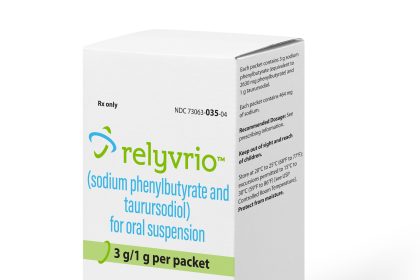Judge Rules Against Drugmaker in Price Negotiation Lawsuit

WILMINGTON, Del. — A federal judge in Delaware ruled against the pharmaceutical and biotech company AstraZeneca last Friday in a case challenging the constitutionality of Medicare’s new drug negotiation program.
The case is one of several filed by the pharmaceutical industry and its allies and the first to be decided at the district court level.
In a 45-page ruling, Colm Connolly, chief judge of the U.S. District Court of Delaware, held the British multinational had simply not proven that the drug price negotiation program — centerpiece of the Biden-Harris administration’s efforts to lower prescription drug prices — jeopardizes the company’s property rights.
As a result, Connolly wrote, AstraZeneca did not have standing to challenge Medicare’s guidance related to the program.
“AstraZeneca’s ‘desire’ or even ‘expectation’ to sell its drugs to the government at the higher prices it once enjoyed does not create a protected property interest,” Connolly wrote at one point.
“And because AstraZeneca has no legitimate claim of entitlement to sell its drugs to the government at any price other than what the government is willing to pay, its due process claim fails as a matter of law,” he said.
Connolly also rejected AstraZeneca’s claims that “participation in the Drug Price Negotiation Program is anything but voluntary,” a contention based on an earlier 3rd Circuit ruling in a case related to a different government program, Sanofi Aventis U.S. LLC v. HHS.
“In support of this assertion, it points to dicta in Sanofi that ‘[t]he federal government dominates health care’ and ‘uses [its] market power to get drug makers to subsidize health care.’
“But neither that dicta nor anything else the 3rd Circuit said in Sanofi suggests in any way that drug manufacturers are required to participate in the [the price negotiation program] or any other part of Medicare,” Connolly wrote.
“The [Inflation Reduction Act] offers a powerful incentive — the opportunity to sell products to more than 49 million Medicare and Medicaid beneficiaries — to induce drug manufacturers to participate in the program and negotiate with CMS maximum fair prices for selected drugs,” he continued. “That incentive is not, as AstraZeneca contends, ‘a gun to the head.’ It is a potential economic opportunity that AstraZeneca is free to accept or reject.
“Because AstraZeneca’s participation in Medicare is not involuntary, AstraZeneca does not have a protected property interest in selling drugs to the government at prices the government will not agree to pay. Accordingly, AstraZeneca’s due process claim fails as a matter of law,” he wrote.
In a statement, AstraZeneca said it is “disappointed with the court’s decision and the potential negative impact it will have on patients’ access to future life-saving medicines.”
The statement went on to say the company is evaluating its path forward.
Connolly’s ruling comes a month after a federal judge in Texas tossed a separate lawsuit challenging the price negotiation program, and a federal judge in Ohio refused to impose a preliminary injunction sought by the U.S. Chamber of Commerce, one of the largest business lobbying groups in the nation.
The Delaware case, however, is the first to be decided on its merits, and could foretell the outcome of similar cases filed across the country on similar grounds.
“While big pharma continues to use the courts to try to thwart lower prices for consumers, today’s win is an important victory,” said White House press secretary Karine Jean-Pierre in a written statement.
“When President Biden came into office, he promised to fight to lower health care costs for American families,” she said. “The president will never stop fighting to lower drug costs for the American people.”
Dan can be reached at [email protected] and at https://twitter.com/DanMcCue

























